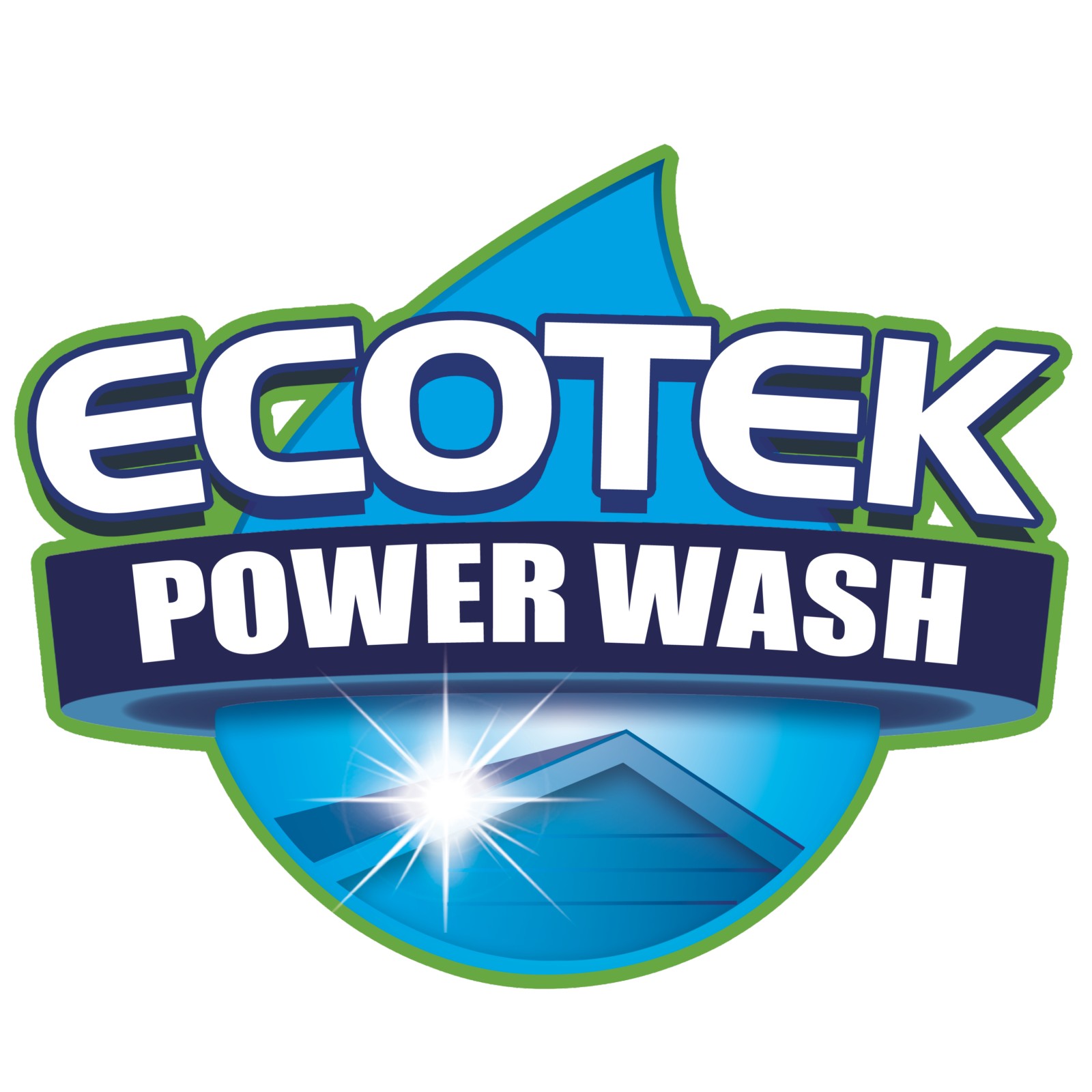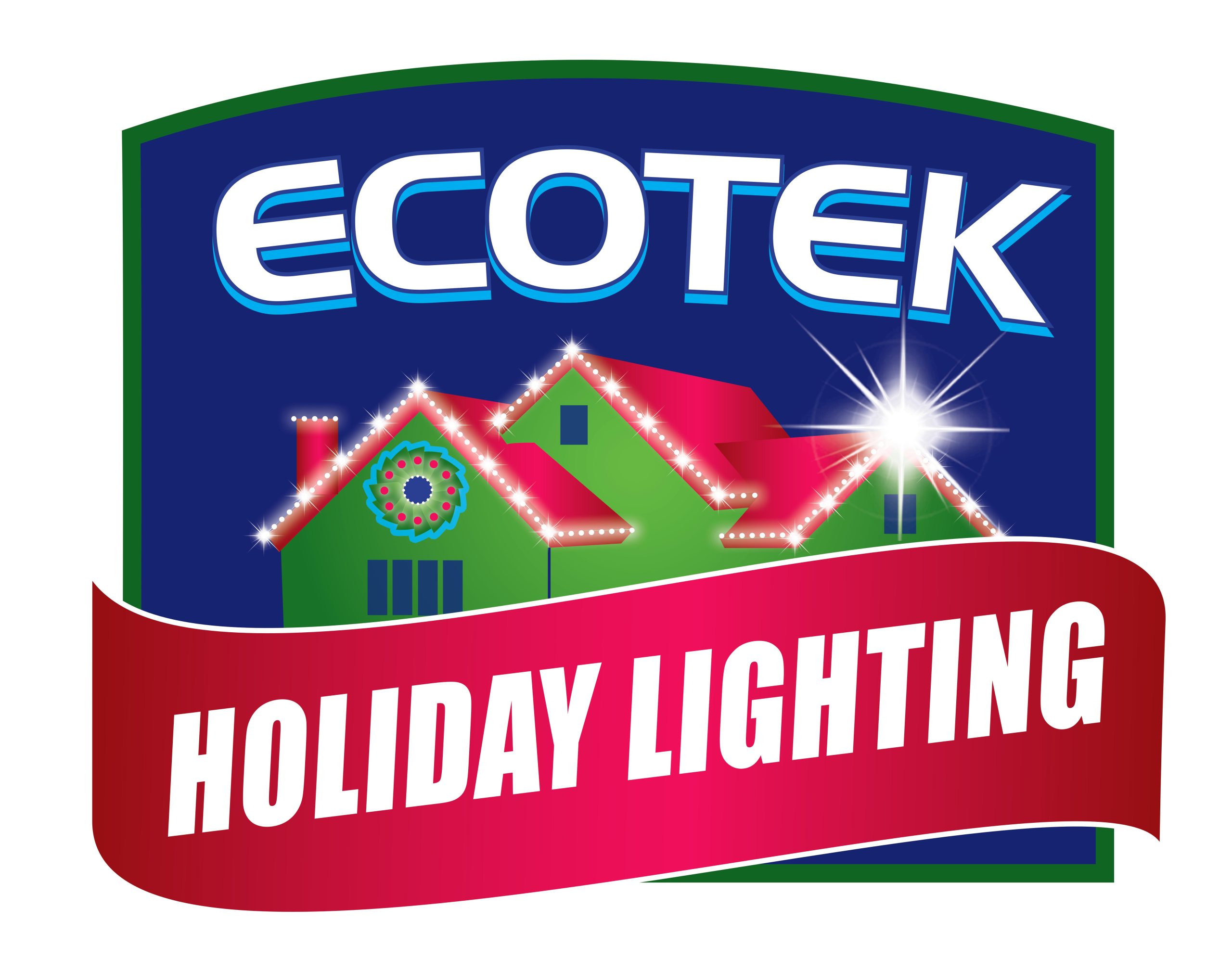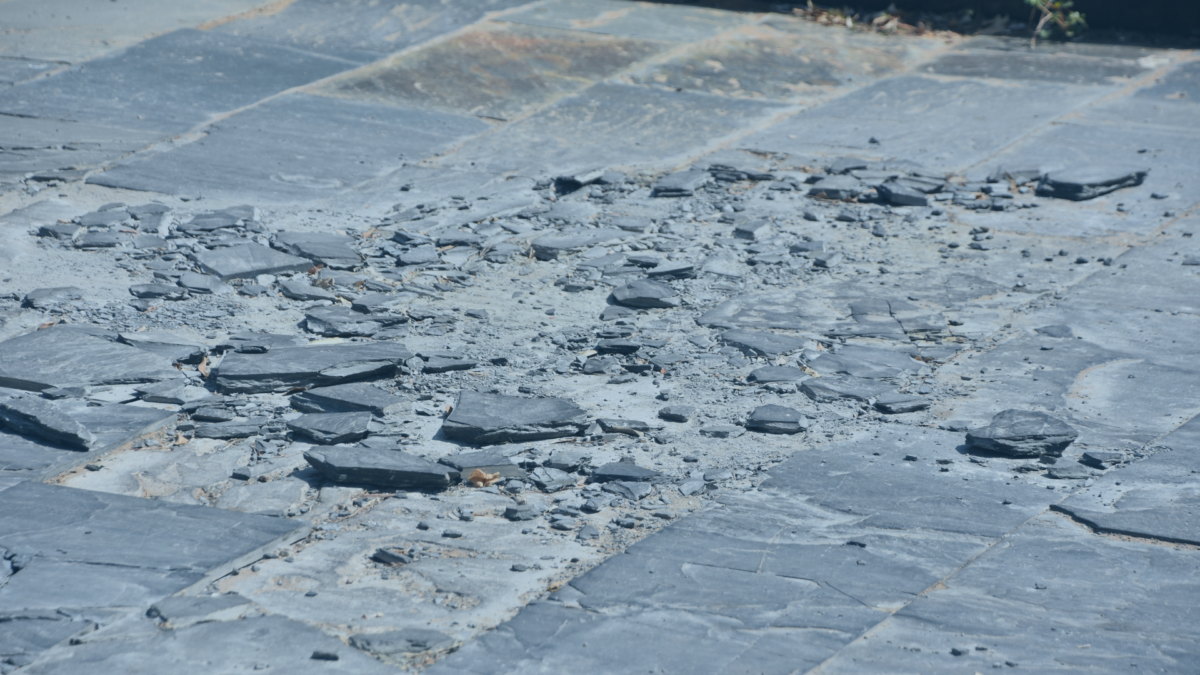[et_pb_section][et_pb_row][et_pb_column type=”4_4″][et_pb_text]
EcoTek provides pressure washing services to residential and commercial clients in Maryland, Virginia, and DC. There are many myths in the world of power washing. So, we thought we would debunk them as well as spread the word about our legendary eco-friendly services, including high-speed pressure washing and soft washing for delicate surfaces.
Below, find common power washing myths and the actual facts that can help you hire a pressure washing service for your roof, home, or business.
Myth 1: Pressure washing only uses high water pressure to clean surfaces.
Fact: Pressure washing typically uses high water pressure to clean durable surfaces. However, we can also use soft washing on delicate areas such as vinyl siding. For example, soft washing can safely clean the delicate surfaces of roof shingles to preserve the structure while washing away fungus, dirt, and mildew. Please call us for house washing services, and we’ll use the appropriate pressure to protect and clean your home’s exterior.
Myth 2: Pressure washing is only useful for large buildings or homes.
Fact: Power washing is safe for nearly every external surface, including brick, pavers, fencing, sidewalks, and driveways. In fact, we offer a two-year limited warranty on house and building cleanings and a five-year warranty on roof cleanings. Additionally, our pressure washers can clean any structure, no matter how large or small.
Myth 3: Pressure washing is an easy DIY project.
Fact: It’s not as easy as it looks to operate a power washer without the proper training. Without the right technique, you could leave behind etchings and sensitive surfaces at your home or business. We highly recommend hiring a professional with years of experience and the appropriate personal protective gear.
Protect yourself and your family from injuries due to high water pressure by calling EcoTek. Our qualified technicians professionally clean the designated surfaces with environmentally friendly pressure and soft washing services.
Myth 4: Every surface is safe for power washing.
Fact: pressure washing works for many exterior surfaces. However, some surfaces are not suitable for high water pressure or even softer water pressure. It’s important to hire a professional to determine which surfaces are safe for power washing. Trying to figure that out on your own could result in costly damage to your driveway, roof, home, or business.
Myth 5: Pressure washing detergent isn’t safe for your home exterior.
Fact: EcoTek has specially formulated detergents for our power washers. We believe in reducing our total carbon footprint as much as possible. So, our technicians use just enough environmentally friendly soaps and solvents to minimize the impact of our services. Of course, we look out for our clients too. The detergent we use won’t harm children or pets and leaves your home or business sparkling clean without damaging brickwork, siding, or concrete surfaces.
EcoTek stands out among pressure washing companies for our attention to detail and 100% satisfaction guarantee. From vinyl siding to brick pavers, we can help you come clean with
professional soft washing or power washing services.
The power washing pros at EcoTek will provide an upfront estimate and help you determine which services are viable for our highly effective cleaning methods. We stand out among other power washing companies for our customer care and service. If you’re interested in power washing services for a Baltimore home or power washing a Norfolk, VA commercial location, our team has the experience, knowledge, and resources to get the job done right.
Call EcoTek today for power washing services in Maryland, Virginia and DC.
[/et_pb_text][/et_pb_column][/et_pb_row][/et_pb_section]
ecotekstg
on
February 10, 2023


